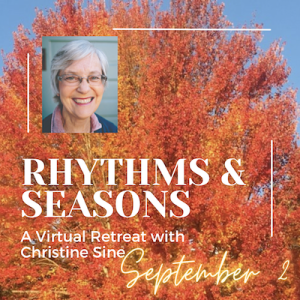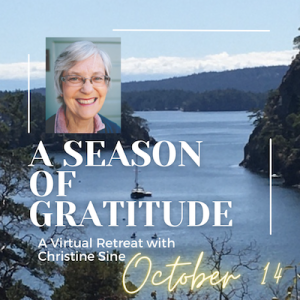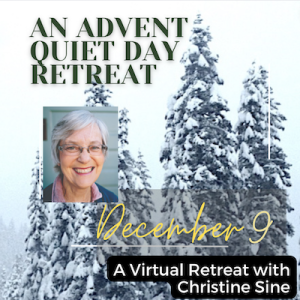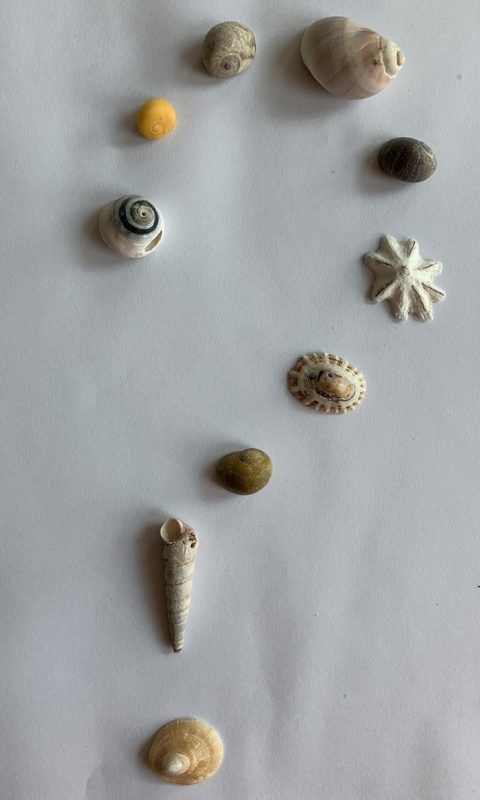Everywhere I looked this week it seemed I was faced with yet another person talking about deconstructing their faith. Deconstruction is a phenomenon within evangelicalism in which Christians rethink their faith and jettison previously held beliefs, sometimes to the point of no longer identifying as Christians. And it seems to be on the increase. Jesus followers are increasingly disillusioned with their beliefs, their churches, and the behaviour of their fellow believers. To be honest I don’t like the term deconstruction, primarily because it does imply a breaking down of faith in such a way that there may be nothing left. There is often no encouragement to rebuild or reshape ones belief. I like to use the work reconstruction because it implies there is a positive outcome in which our beliefs are remade rather than jettisoned. Sometimes moving from deconstruction to reconstruction means reorienting our thinking and the questions we ask. Rather than “Why does God allow suffering?” asking “How does God expect me to help alleviate the suffering of others?” At other times it means actively looking for God in our midst. Every time we see an act of compassion, love and generosity, that is God in our midst, almost as though the goodness of God is built into our DNA.
My own reconstruction began when I worked in the refugee camps on the Thai Cambodian border in the mid 1980s. In the midst of the pain and the suffering I found myself asking “Does God care, and if so what is my responsibility for those who suffer?” That questioning changed the trajectory of my life. However my reconstruction did not stop there. In fact it has been a slow process of rethinking, reimagining and reshaping that continues to this day. Every time I start to get complacent and feel that I know everything there is to know about God, faith and what to believe, God starts to nudge me about another false belief I hold that needs to be transformed and reconstructed.
It seems to me that this journey I am on is a normal process of maturing. If our faith doesn’t change then we stagnate. If we are not open to new ideas and interpretations that stretch us and question our beliefs, then our thought processes become rigid and our boundaries brittle. It seems to me that when we first become Christians we often believe in a very small God, a God whose interests revolve around our needs and our inadequacies. As we grow in our faith the God we recognize should become larger, more inclusive of others and of our responsibility towards those less fortunate than ourselves. It should expand to recognize the sacredness of creation and our responsibility as its stewards. If we are not listening to voices whose opinions are very different than our own and asking questions whose answers may push us outside the safe but sometimes suffocating box in which we live, then we are not in a healthy place.
So here are a few basic thoughts with which to start:
- What voices are you listening to? This year I expanded my Bible collection to include the The First Nations Version New Testament and The Second Testament by Scot McKnight but I also added Black Earth Wisdom by Leah Penniman, Kindling the Celtic Spirit by Mara Freeman, Church of the Wild by Victoria Loorz and Original Blessing by Matthew Fox. These are but a few of the voices that have made me think and rethink my faith this year. Then there are the voices of poets who seem to speak truth to my soul in penetrating and often unexpected ways. Drew Jackson’s Touch the Earth was particularly impacting for me and many others that I listen to through social media channels. Some of them are far from Christian faith as I understand it. Some of them are advocates for other religions, all of them are worth listening to and reflecting on. There are the voices too of those who have been unjustly treated, abused and abandoned within our society. I am currently grappling with the implications of the founding of our countries – for me both the U.S. and Australia where the doctrine of discovery played such havoc amongst indigenous people. I am learning a lot from the Coalition to Dismantle the Doctrine of Discovery, and listening to the Spirit guide me into the actions that are necessary. Last but not least there is the voice of creation that resounds louder and louder in my mind as high temperatures and the groans of climate change painfully play out against the backdrop of God’s beautiful world, teaching me, nurturing me and transforming me.
- What are the unchangeable foundations that undergird your faith? This is one we all struggle with. When I first started talking about stepping outside the lines of evangelical faith I was often asked “How do you know what is true?” We are always nervous about misstepping and unfortunately that often means we don’t take any steps at all. And identifying truth is not an easy question to answer, because as our view of God grows, our perception of what is true changes and the foundations we rely on shift. My basic statement now is “God is love, Jesus is my example, the Spirit dwells within as my guide.” I was very impacted this week by a comment from Jack Burton in The Gap. The test is never ‘How clever am I?’ but ‘How loving am I?’ That seems to sum up what is increasingly at the centre of my faith.
- Who walks with you on your journey? We all need wise guides, mentors and counsellors, companions who walk with us, not always in step, not always even on the same journey, but always able to speak words of wisdom and truth to us.
Growing our faith can be an uncomfortable business but one that should be the goal of our lives no matter where we are at and no matter it might make us struggle. Ask yourself “Where has your belief system been reconstructed in the last few years? Are there other places where God is nudging you to step outside the boundaries of the comfortable?
As I contemplated that this week, this is what came to mind:
I have not deconstructed,
but reconstructed.
Kingdom focused,
Not the cross.
Practice more than doctrine.
Community care,
More than individual advancement.
All together or not at all.
Love is at the centre.
Interdependent not independent.
Earth matters,
All is connected,
God is everywhere revealed,
All creation shimmers with divine light.
NOTE: As an Amazon Associate I receive a small amount for purchases made through appropriate links. Thank you for supporting Godspacelight in this way.


 Join Christine Sine for one or all of her three seasonal retreats: Rhythms & Seasons, A Season of Gratitude, and An Advent Quiet Day. Save the dates – September 2nd, October 14th and December 9th at 9:30-12:30.
Join Christine Sine for one or all of her three seasonal retreats: Rhythms & Seasons, A Season of Gratitude, and An Advent Quiet Day. Save the dates – September 2nd, October 14th and December 9th at 9:30-12:30.


2 comments
Hi Christine, I so appreciate your honest and thoughtful comments on deconstruction. I have read a couple books chronicling faithful Christian’s process and by far my favorite is Rachel Held Evans, “Searching for Sunday.” An excellent example of how deconstruction can be painful, yet lead to a good place. Like your story as well. Thank you! Coe
Yes I appreciated Rachel Held Evans book Searching for Sunday. Kathy Escobar’s FaithShift is another good one, both of them several years old. My concern is that most of the conversation I have heard recently seems to focus on deconstruction rather than reconstruction